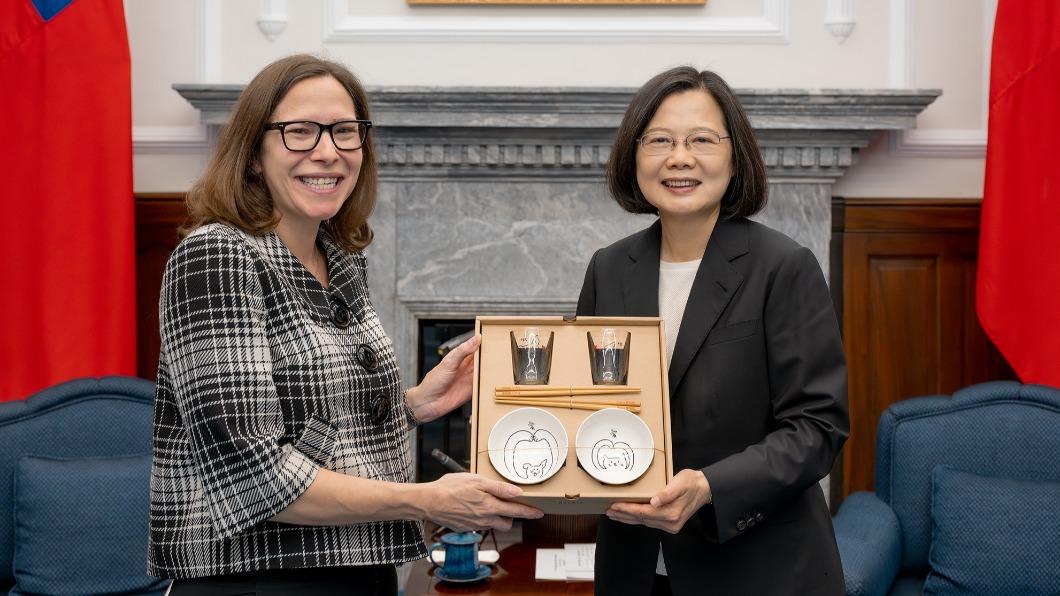TAIPEI (TVBS News) — President Tsai Ing-wen met with Laura Rosenberger, chair of the American Institute in Taiwan (AIT), on Monday (April 1). Tsai expressed her hopes for continued deepening of cooperation between Taiwan and the U.S. in areas such as trade, supply chain security, and information security. Rosenberger stated that the Taiwan-U.S. relationship is as solid as a rock and hopes Taiwan will continue to maintain this relationship.
The Taiwan Relations Act (TRA) was enacted in response to the U.S. establishing diplomatic relations with the People's Republic of China on Jan. 1, 1979, severing its ties with the Republic of China (R.O.C.) that were established as early as 1913. The TRA, signed into law by President Jimmy Carter on April 10, 1979, was promoted by Taiwan's many supporters in the U.S. Congress to maintain various unofficial relations with Taiwan.
The TRA is a domestic law of the U.S. with 18 articles. Some in the U.S. argue that it, being a law, ranks higher than the three joint communiqués between Washington and Beijing. China, however, argues that the three joint communiqués are legally binding diplomatic documents.
The TRA, along with the three joint communiqués, often referred to as "One Law, Three Communiqués," together form the main framework of U.S. policy toward the Taiwan Strait. The TRA explicitly states that it aims to "help maintain peace, security, and stability in the Western Pacific." U.S. arms sales to Taiwan and defense cooperation between the U.S. and Taiwan are based on these provisions.
In 2000, some pro-Taiwan members of the U.S. Congress felt that the TRA was not clear enough on how the U.S. should respond if Taiwan were to be invaded by China militarily, so they proposed the Taiwan Security Enhancement Act, which did not pass. In March 2018, President Donald Trump signed the Taiwan Travel Act into law, allowing for higher-level visits between Taiwanese and American officials.









